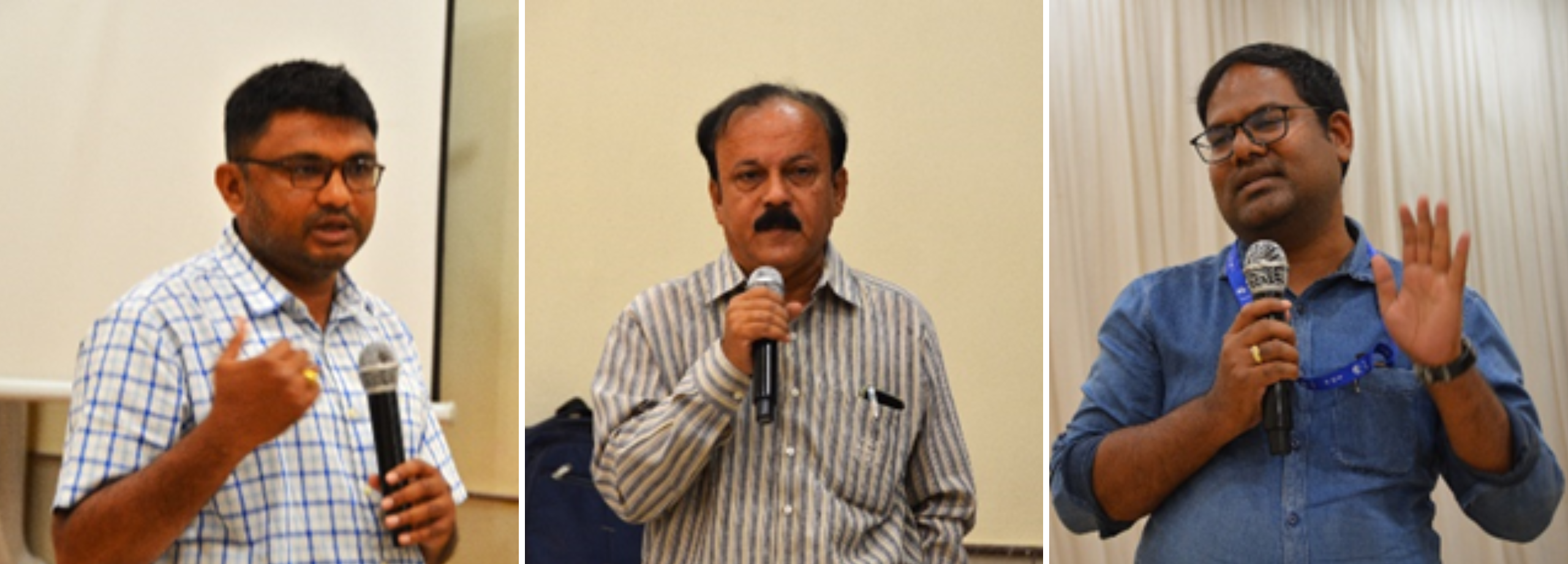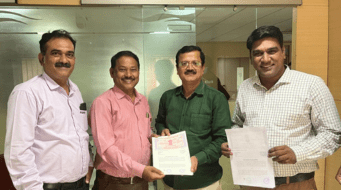– Eshwer Kale
WOTR, with support of The Honeywell Hometown Solutions India Foundation (HHSIF) under the ‘Integrated Water Resources Development and Promotion of Ecosystem-based Adaptation in Maharashtra and Telangana – A Practice and Knowledge Embedded Approach’, has launched a forward-thinking transformative scenario planning process with the objective of fostering resilient incomes and advancing environmentally sustainable practices for Farmer Producer Organisations (FPOs).
Building Sustainable Farmer Producer Organisations (FPOs)
The Indian Government has already established an ambitious target of registering 10,000 FPOs, bringing together more than 1 million farmers as members. These FPOs serve as a critical catalyst in not only doubling farmers’ income from agriculture but also in creating and seizing diverse business opportunities, including value addition and trading, which contribute to the overall growth and stability of the agricultural sector.
By focusing on sustainable, nature-friendly practices, FPOs can simultaneously support farmers’ livelihoods and contribute to a greener, more sustainable future for India’s agricultural landscape. Maharashtra by far stands at the forefront of FPO formation and promotion, with concerted efforts from central and state governments, NGOs, and CBOs.
The FPO proposition revolves around enhancing agricultural production which hinges on four key factors: water resource utilization, soil quality, crop selection, and land use. However, the rapid depletion of natural resources, tree cutting and competition among farmers to maximize income threatens to further degrade the environmental foundation. Extreme weather events such as heavy rain, floods, hailstorms, drought, and slow-onset events such as dry spells, heat waves, and cold waves exacerbate the vulnerability of the agricultural system.
In light of these challenges, WOTR initiated an application of a Transformative Scenario Planning (TSP) process to explore the long-term viability of current agricultural practices promoted by FPOs while maintaining robust production and income of farmers in the absence of a healthy natural resource base.
The Transformative Scenario Planning (TSP) Workshop for FPOs
To tackle this challenge, WOTR is organising a series of workshops titled ‘Farmer Producer Organisations (FPOs) in Jalna District of Maharashtra in 2030: Towards Resilient Income and Nature-Friendly Agriculture Practices.’ The first of this series was a two-day workshop, held on March 28th and 29th, 2023, in Jalna, Maharashtra. The workshop gathered 45 diverse stakeholders in the FPO sector and other key participants including representatives from government departments (Agriculture Department, NABARD, ATMA, SMART project), NGOs working on FPOs and farmer issues, social action groups, Krishi Vigyan Kendra (KVK), academicians, as well as the Network of FPOs and FPO directors and farmers.


During the workshop, participants engaged in a group exercise to assess the current situation related to farming, from the newspapers of the recent months.


This was followed by a paired walk which provided an opportunity for participants to discuss their respective concerns about the subject with their partners. The concerns so deduced led to the eventual identification of two key drivers, determined through a voting process. If farmers were to maintain their current practices, the two key drivers that would significantly influence and impact the future if FPOs are: 1) income, and 2) the natural resources base.

Based on these two core drivers, participants collaboratively developed four distinct scenarios, which were represented as models.



To effectively communicate these scenarios, participants presented them through engaging in role-plays.

The Next Steps
In subsequent workshops, participants will expand upon these four narratives, crafting detailed stories that represent each model. Together, they will establish a shared vision or desired outcome and develop a roadmap to achieve it. In essence, the goal is to devise strategies that can successfully transform the current unfavourable, unstable, and unsustainable situation into a mutually desired and sustainable state for all the participants.

Also Read
Successful Farmer Producer Organisations look beyond the objective of profits – Webinar Highlights





